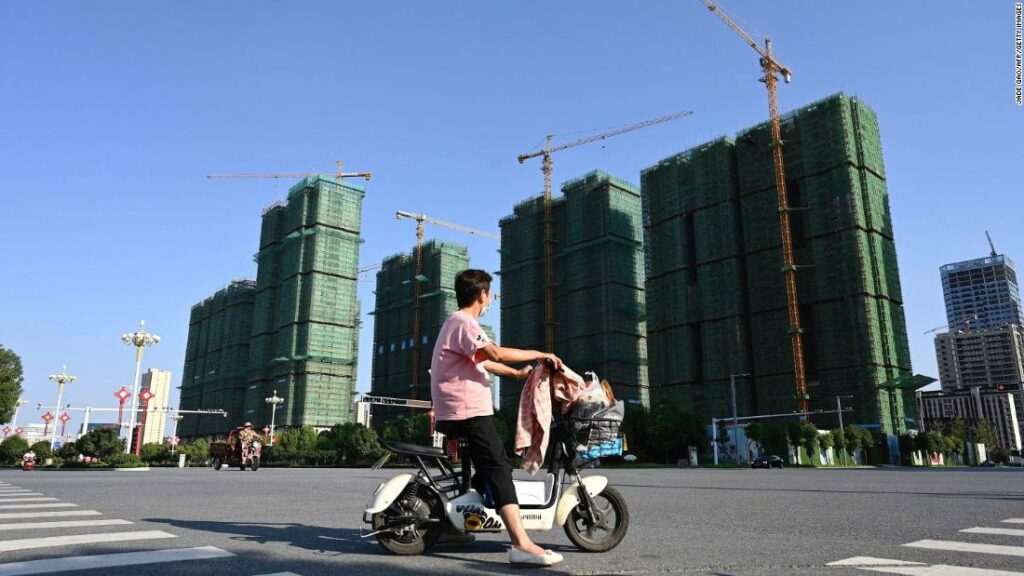5 things to know about Evergrande, the Chinese giant in crisis

Experts have characterized the firm’s struggles as a major test for Beijing that risks turning into China’s The group was founded by Chinese billionaire Xu Jiayin, also known as Hui Ka Yan in Cantonese, who was Evergrande also caters to tourists through its theme park division, Evergrande Fairyland. Its claim to fame is a massive undertaking called In some ways, the company’s aggressive ambitions are what landed it in hot water, according to experts. The group “strayed far from its core business, which is part of how it got into this mess,” said Mattie Bekink, China director of the Economist Intelligence Unit.Goldman Sachs analysts say the company’s structure has also made it “difficult to ascertain a more precise picture of [its] recovery.” In a recent note, they pointed to “the complexity of Evergrande Group, and the lack of sufficient information on the company’s assets and liabilities.”But the group’s struggles are also emblematic of underlying risks in China.”The story of Evergrande is the story of the deep [and] structural challenges to China’s economy related to debt,” said Bekink.The issue isn’t entirely new. Last year, a slew of Chinese state-owned companies “In our opinion, how Evergrande credit stresses will be resolved will drive market sentiment,” Goldman Sachs analysts wrote recently, referring to the credit market and the broader economy. They added that the Chinese bond market could be hit and a loss of confidence could “spill over to the broader property sector.”Wall Street appears to be more sanguine about the risks of contagion overseas. “I don’t think the Evergrande meltdown, and the financial problems of Chinese property companies more broadly, will reverberate back on the US economy or markets,” Mark Zandi, chief economist at Moody’s Analytics, told CNN Business last week.What could happen next?Analysts expect the Chinese government to intervene to limit the fallout if Evergrande were to default. And authorities are clearly watching closely, while attempting to project calm.Last week, Fu Linghui, a spokesperson for China’s National Bureau of Statistics, acknowledged the difficulties of “some large real estate companies,” according to state media.Without naming Evergrande directly, Fu said that China’s real estate market had remained stable this year but the impact of recent events “on the development of the whole industry needs to be observed.”But some suggest it may already be too late to save the company.Evergrande’s financial problems have been widely dubbed by Chinese media as “a huge black hole,” implying that no amount of money can resolve the issue.”We do ultimately expect that the government will intervene in Evergrande’s case, as it will not allow the company’s defaults to spread into the banking system,” said Bekink. “The impacts from a large default by Evergrande would be remarkable.”— Kristie Lu Stout, Julia Horowitz, Laura He and CNN’s Beijing bureau contributed to this report.






